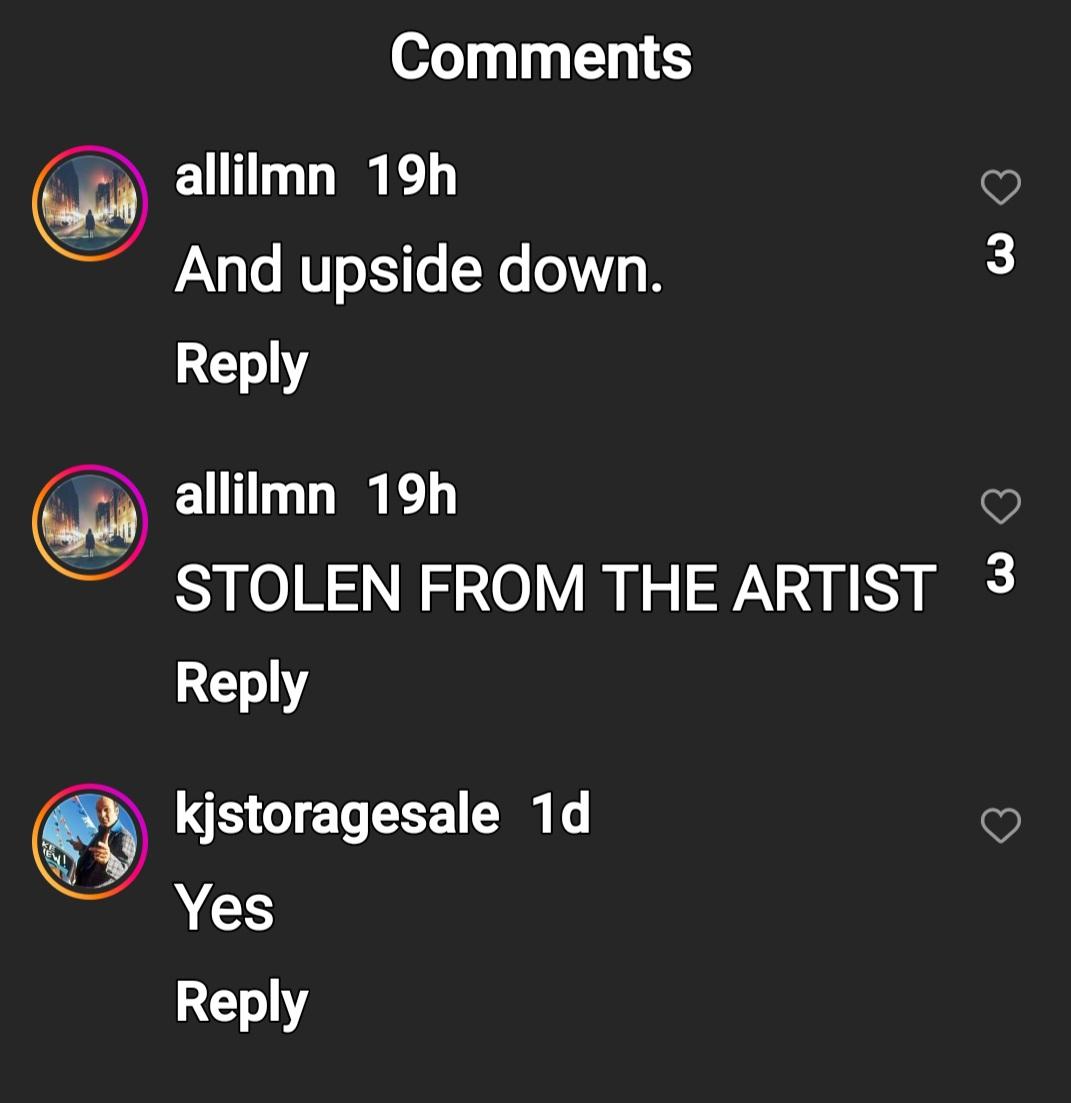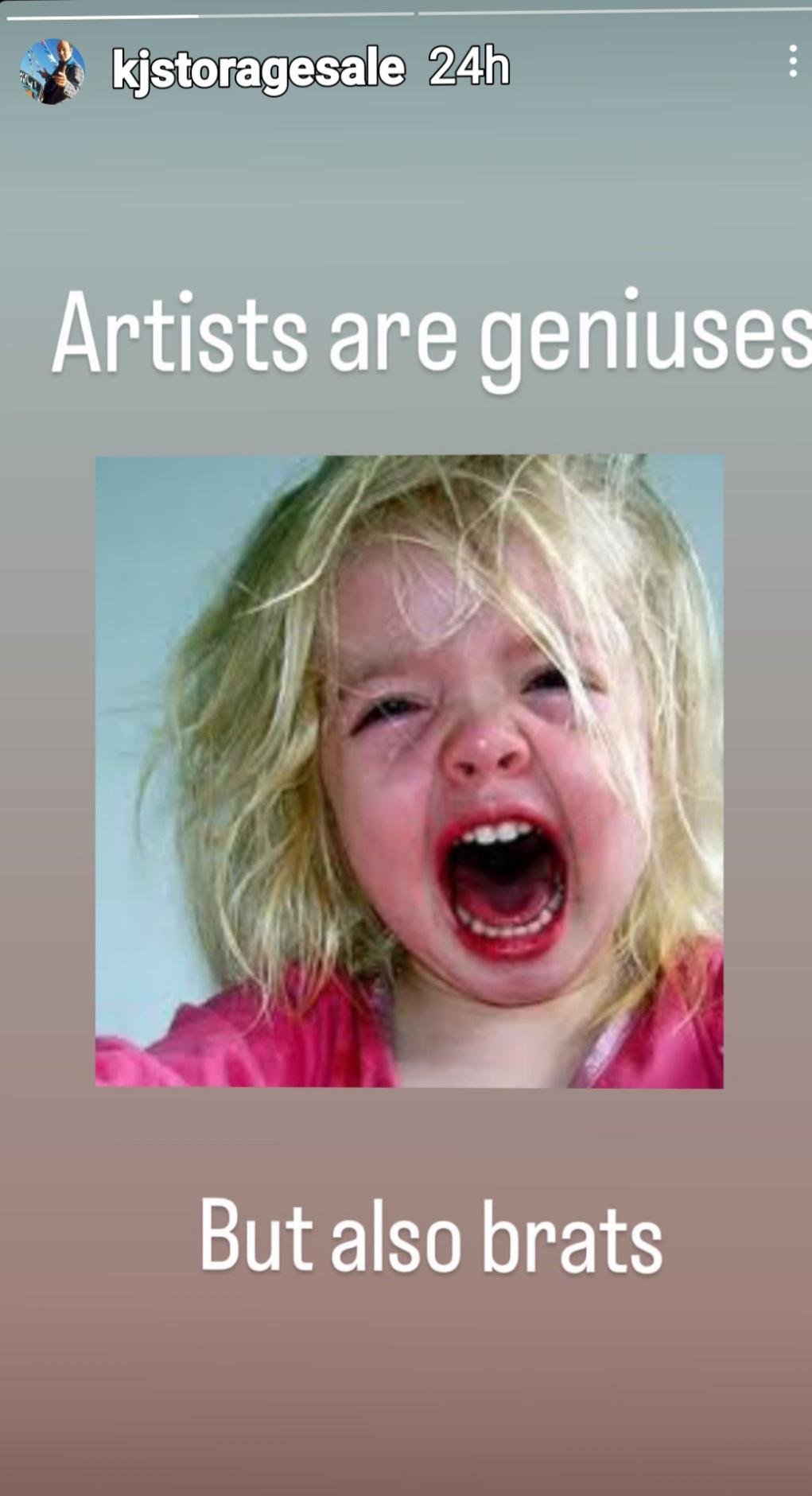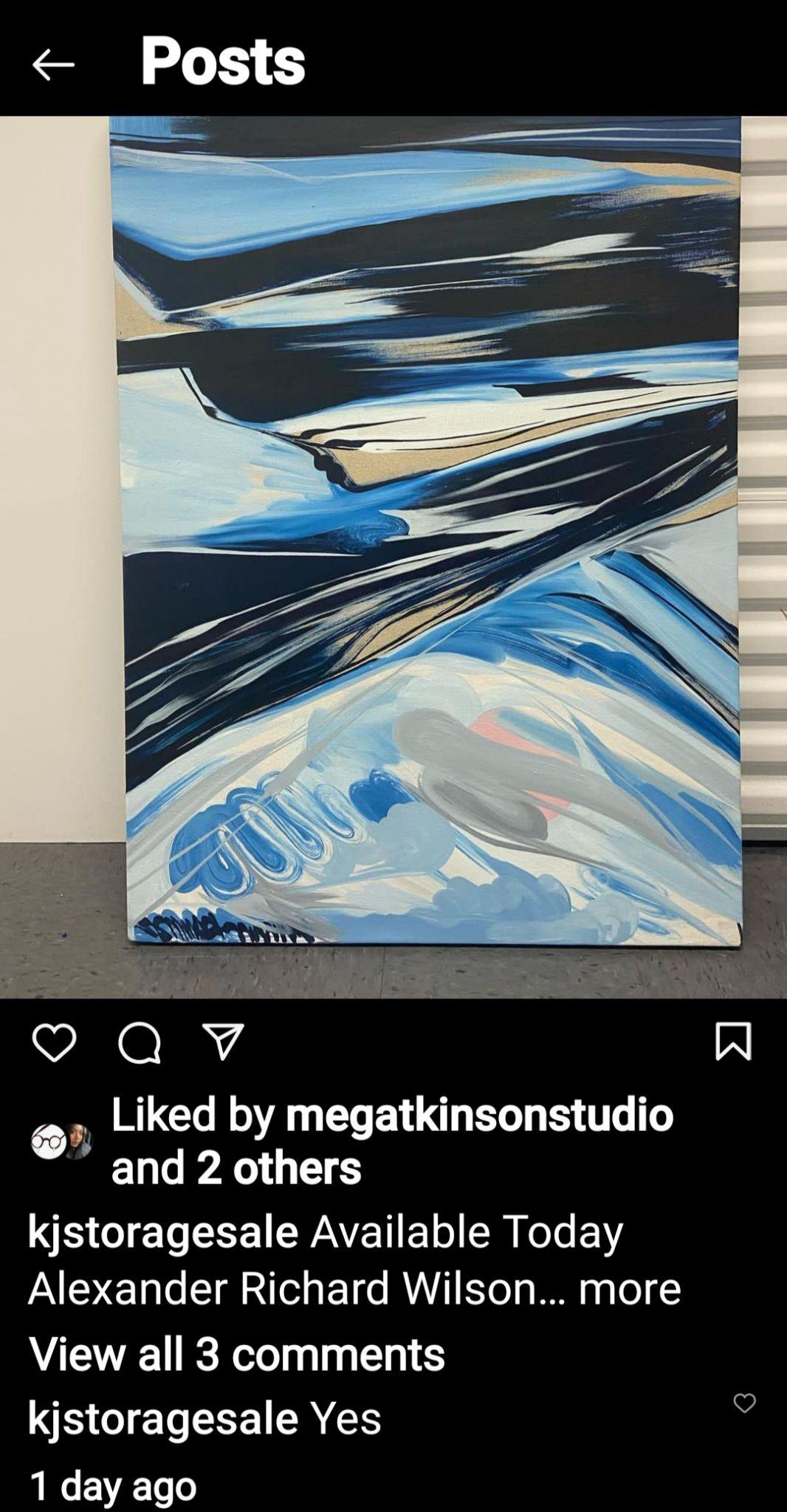The HOUSING Crisis: KJ Freeman’s Storage Sale


Earlier this year, KJ Freeman closed her gallery HOUSING which after migrating from Brooklyn was a staple on Henry Street that championed black artists. Since the closure, she has publically critiqued the art world and her artists on Persona Non-Grata, her personal account, and most recently KJ’s Storage Sale, where she is selling work below market prices. I don’t know what will come next—perhaps a grand reveal à la Joaquin Phoenix for the release of his 2010 mockumentary “I’m Still Here”? But, it seems that rather than a parody of art world critique Freeman is heading toward the well-trodden path of a gallerist with active lawsuits and nonpayment to artists, trying to get away with being the victim.
In 2021, the art media touted Freeman as a gallerist who would change the art world, especially for BIPOC artists, with her curatorially-driven space HOUSING. In Cultbytes, a writer interviewed Freeman and wrote: “Demystifying sales, thoughtfully fostering artists’ careers, and fighting against the increasingly toxic practice of immediately flipping works at auction, HOUSING is a refreshing model that places legacy above sales.” As it turns out, her artists are now turning against her, alongside media outlets—for example, ArtNews that according to Freeman pulled an article about her experience with the Armory Show—, and many of her followers on Instagram. She is being openly criticized in the comments section of her social media accounts for non-payment, and mistreatment, while she is disparaging her artists publicly and threatening them with legal action over email.
Importantly, KJ Freeman has long been vocal about the instrumentalization of black bodies and artists within the institutional art world and the mechanisms of both sexism and classism that act as barriers to entry. But somewhere along the way she went awry. I stopped taking her seriously when she barred biracial people from the race conversation in stories on her Instagram account that continued for about a week. Instead of platforming her criticism in an institutional or art market settings, she is now doing it solely through her own channels.
This year she made a downpayment to the Armory Show for her participation, however, she asked them to offer her a free booth or an opportunity to meet with collectors in order to be highlighted within the fair context as she was short on cash–they did not, so she pulled out of the fair. Since 2019, as part of the Gramercy International Prize, the Armory Show has offered one free booth to a New York-based gallery; Freeman has juried the selection as a volunteer. When the Armory Show refused to repay her downpayment she called it: “white supremacist strategies.” Could the Armory Show have had more forthcoming? Yes, they could have offered her an arena to speak or meet with collectors, a discount on her participation or simply repaid her downpayment as a courtesy. But given Freeman’s Instagram presence, they perhaps didn’t have the capacity to handle what might turn into a PR fiasco by making exceptions.
Pushing back against the art world while participating in it is a difficult balancing act that Freeman has not succeeded with. It requires versatility in switching platforms, less visibility in matters that are less important, and inclusive dialogue. In March 2021, the art critic Ann Binlot floated that Freeman might be the person behind Cancel Art Galleries. Binlot was attacked online—the comments section in this post where CAG refuted the claim is telling—and criticized by many of Freeman’s followers. These responses were spiteful. As is Freeman’s current response to her artists. After all, it is important that we call out bad behavior but, breaking down structural boundaries in the art world by bullying and mistreating others seems to mimic toxicity within the art world that is already in place.

On her Instagram page, Persona Non-Grata, she openly criticizes her artists for moving onto larger and more established galleries, which in today’s art world where artists seek additional support to exhibitions, sales, and some PR is common. “These artists were more than willing to throw me underneath the moving vehicle, so they could go into a bigger gallery, so they could make more money,” she says in an Instagram live post. She continues by stating that “I think I did a pretty good job” despite the artists being deterred by “mechanism of sexism and anti-blackness…prohibit[ing] them to get to the level they really want.” In the past, perhaps. But, what is going down right now is certainly not a good job in regards to respecting and building the artists she works with.
Through her newest venture KJ Storage Space, Freeman is selling work from her storage space at discounted prices within what she claims to be the legal terms of consignment, but without explicit consent from her artists. In addition, she has posted images of works upside down and posts have comments like “STOLEN FROM THE ARTIST” or “Pay the artist who you profit off you loser!.” She also posted an image of a crying child with the text “Artists are geniuses but also brats.” Given the current turmoil with her artists, it is chaotic and in poor taste.

Denver-based painter Alexander Richard Wilson is one of the artists whose work is being marketed on the account. Wilson met Freeman ten years ago in Chicago when he was a student at the School of the Art Institute of Chicago and she was studying at Columbia College Chicago, “I believed in her but let some red flags go,” he tells Cultbytes over the phone. When he moved to Denver three years ago he formalized his relationship with HOUSING. Due to the closure of the gallery and recent statement-making, Wilson asked for his work back. Since then Freeman has threatened him with defamation and cease and desist letters, which have not formally arrived, and is castigating him on Instagram while his work has not been returned.
Hailing from Saint Louis, he comments on his work: “My approach to landscape painting is that I am now seeing a landscape I haven’t seen before which incorporates the weird white peopleness of it all.” Freeman has accused Wilson and many of the other black and brown artists she has worked with of being anti-black. “I feel robbed of my agency and she is blatantly abusive of those around her and to her own life,” he comments on these accusations. Over the past two weeks, eight to ten trans and women of color have reached out to him to share how they have been mistreated by Freeman. Another artist posted their exchange with Freeman on Substack and it is similar to what Wilson experienced.
The proceeds from KJ Storage Sale will, in part, cover accrued storage fees—which galleries usually don’t charge artists for. In a press release issued to Cultbytes, Freeman calls KJ Storage Space: “a performance interactive buying experience that critiques the hypocrisy and extreme forms of anti-blackness perpetuated by a system that uses colonialist strategies to maintain a white majority of ownership and stakes.” This is a commendable idea, but Freeman should have gotten her artists on board instead of working against them to execute this unusual sale.
Understandably, Wilson is disappointed and finds the situation distressing, “being a gallerist is to perform a strangely complicated role” he says about Freeman, but does not condone her behavior. “She is now destabilizing a community of people in a threatening and vengeful way,” he continues.
Earlier today, Freeman spoke about the financial realities of running a gallery; her aim was to buy real estate in order to keep the gallery afloat. Not commonly known, many galleries sustain themselves this way. lt is undeniably hard, at times impossible, to run a gallery without fault lacking investors and financial backing. But bullying and treating artists—that Ben Davis lifts to middle-class status in his post-Marxist book 9.5 Theses on Art and Class—with such disregard and disrespect is difficult to excuse. Artists are the backbone of the art ecosystem and should be safeguarded by their gallerists.
*An earlier version of this article misstated that KJ Freeman had requested from the Armory Show to speak publicly, published the word ‘interracial’ erroneously (now corrected to `biracial’), and did not include the press release statement KJ Freeman issued to Cultbytes.
You Might Also Like
Bjarne Melgaard’s Former Studio Manager Nicholas Cueva Just Called Him Out: The Backstory
HOUSING Gallery: How Legacy and Community Guide the Fierce Supporters of Artists of Color
What's Your Reaction?
Anna Mikaela Ekstrand is editor-in-chief and founder of Cultbytes. She mediates art through writing, curating, and lecturing. Her latest books are Assuming Asymmetries: Conversations on Curating Public Art Projects of the 1980s and 1990s and Curating Beyond the Mainstream. Send your inquiries, tips, and pitches to info@cultbytes.com.

